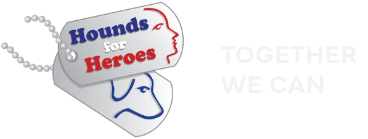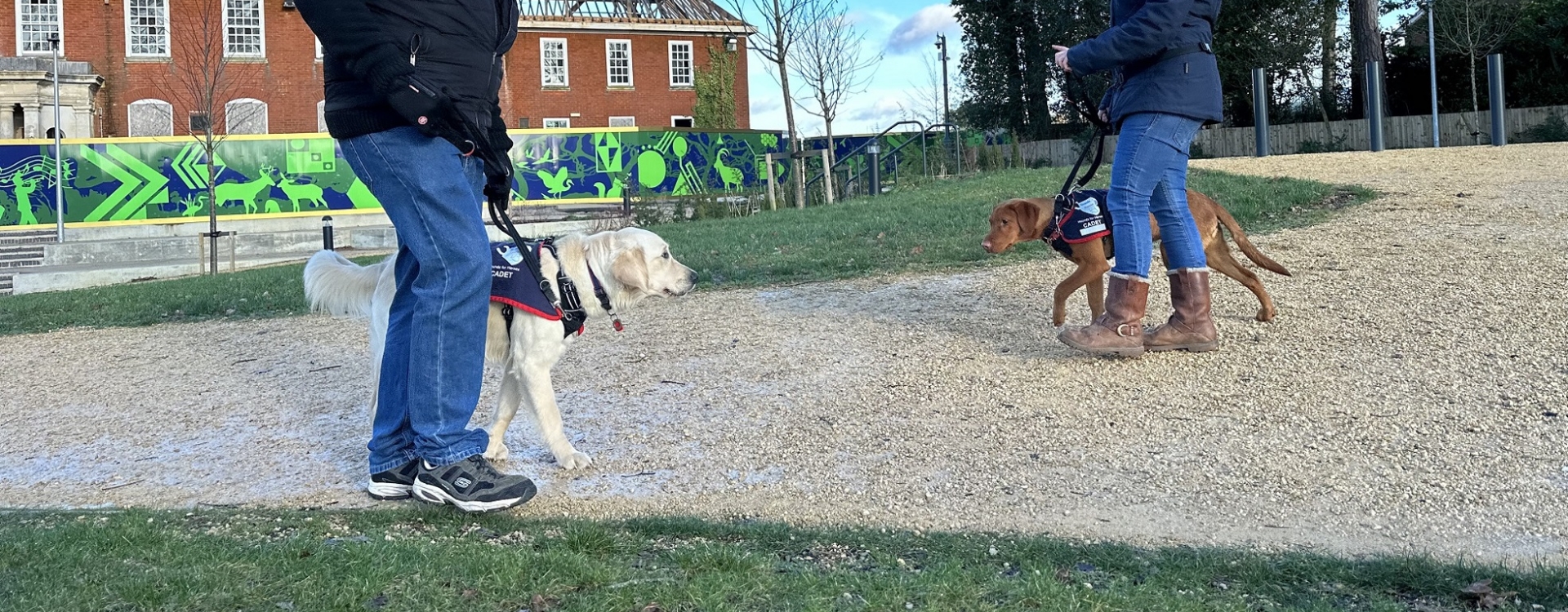Our assistance dogs training programme takes them around 2 years to complete. Their assistance dog journey starts at just 8 weeks old and they will train and develop their skills until they are ready to be partnered and find their perfect match. Find a more in-depth break down of the stages of our dogs' training journey below.
We receive our puppies when they are eight weeks old from the breeder. They go and live with their puppy parent who is such an important part of our team and partner in the training programme.
At home the puppy parent will teach the dog basic obedience and toileting. Puppies are vaccinated at 12 weeks and start their weekly puppy classes with their puppy parent which are led by one of our trainers at Hounds for Heroes HQ.
Puppy classes are a chance for the puppies to socialise with others – canine and human! Our trainers can see how the puppies are progressing, are there to share their experience and support the puppy parents with anything they may need help with.
It's also really important that as well as learning these important life skills which are the foundations for the puppy’s training, they also need time to be puppies! After all the excitement of trips and puppy school, generally involves a lot of sleeping!
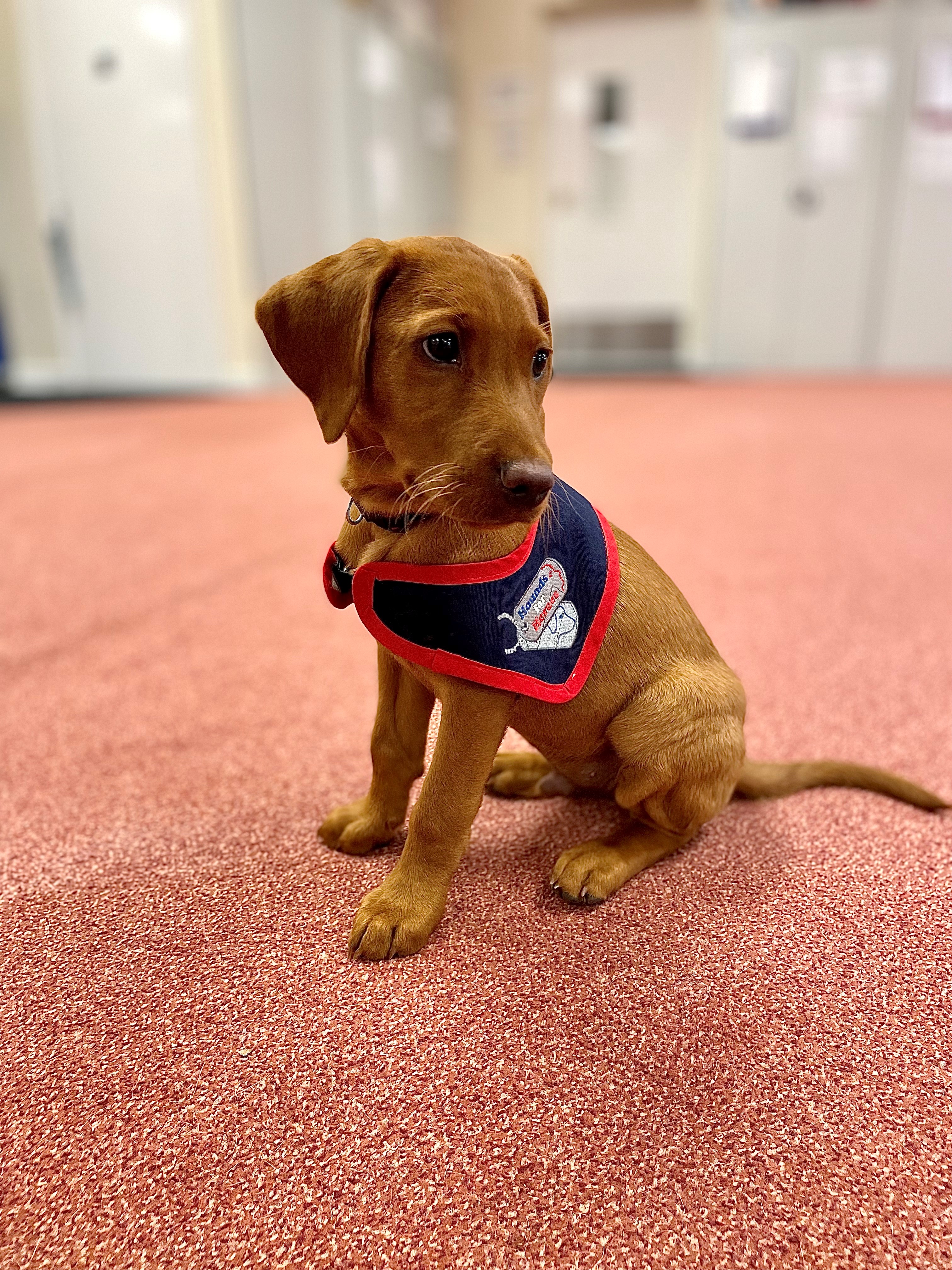
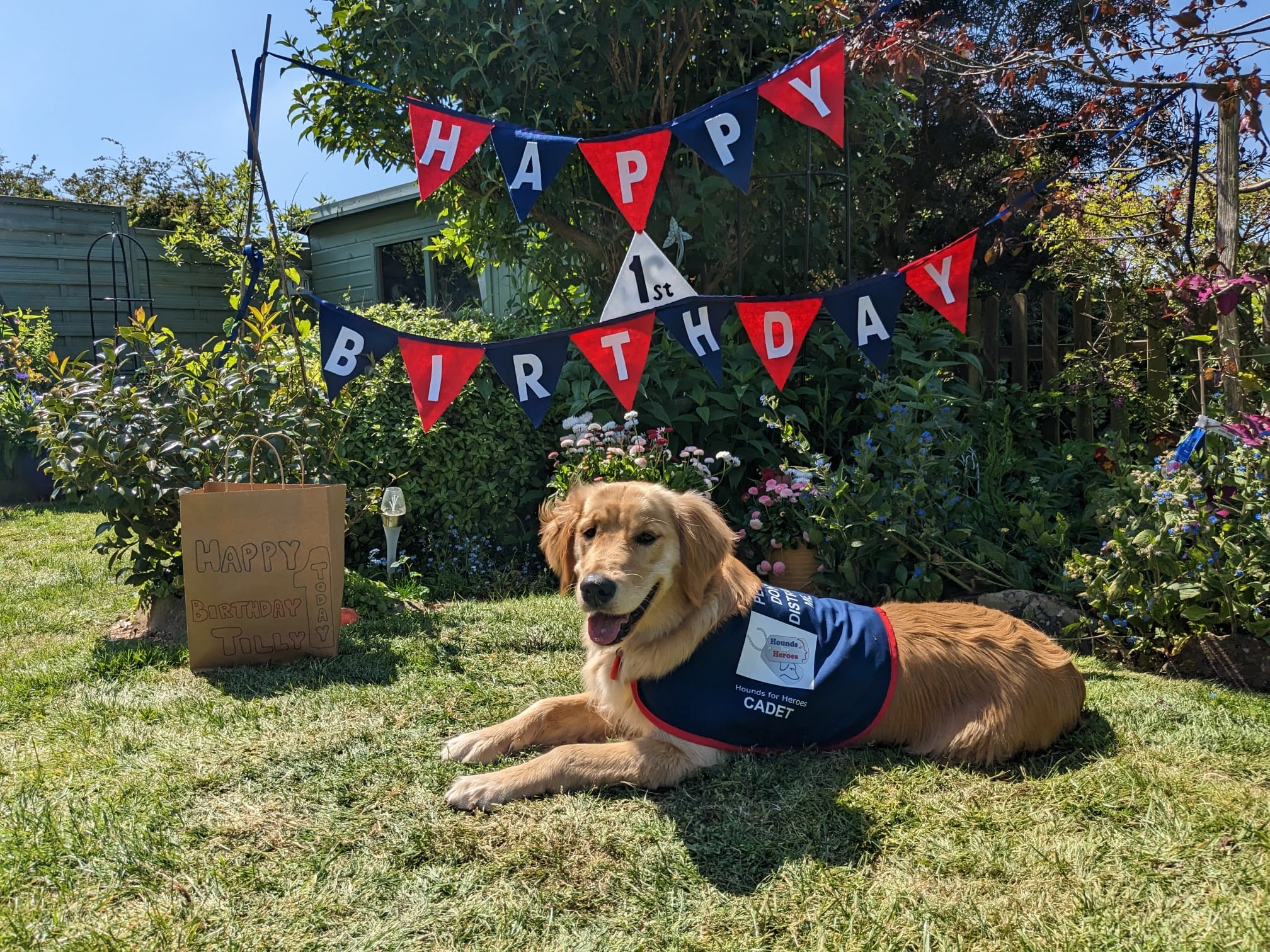
Once the puppies have completed and passed all the initial training criteria they move onto the next stage of training which will take them from around 7-14 months. Like humans, every dog is different so these time frames are fluid which enables us to make sure the dog is comfortable.
The dog's training now focuses on more 1-2-1 sessions with their trainer. Sometimes a puppy parent accompanies the trainer and the dog which can help the dog feel more comfortable and helps the puppy parent to understand the elements involved in this stage of the training programme.
Some puppy classes will still be attended by the puppy parents. Puppies will continue building on their environmental socialisation and their training will begin to introduce trips on public transport and getting used to seeing and being comfortable near wheelchairs.
They will start to make short visits to kennels. It's also common at this stage for the dog to have spent a night with one of our foster parents for a weekend sleepover. It's important that the dogs are comfortable and able to adapt to being moved between different homes.
From around 14 months training progresses to the next stage where the dog will train every day in 1-2-1 sessions with their trainer and the puppy parent will no longer be present.
The length of these training sessions will increase over time to enable the dog to manage a full day’s work with their future Partner.
Training is more focused on specific task work which includes opening cupboards, shutting drawers, removing socks, being able to pick up a mobile phone or to get help in emergencies. The dogs will work with a full range of mobility aids such as wheelchairs, crutches and walking sticks.
Our dogs need to be able to work with different people, not just their trainers, so at this stage they will work with several potential Partners to gain this experience.
Once the dogs have mastered the skills they need to support their future Partner, they will have matching sessions with potential applicants to see if they work well together. This is also an opportunity to identify any additional specific skills the dog needs to learn in order to support the applicant's needs.
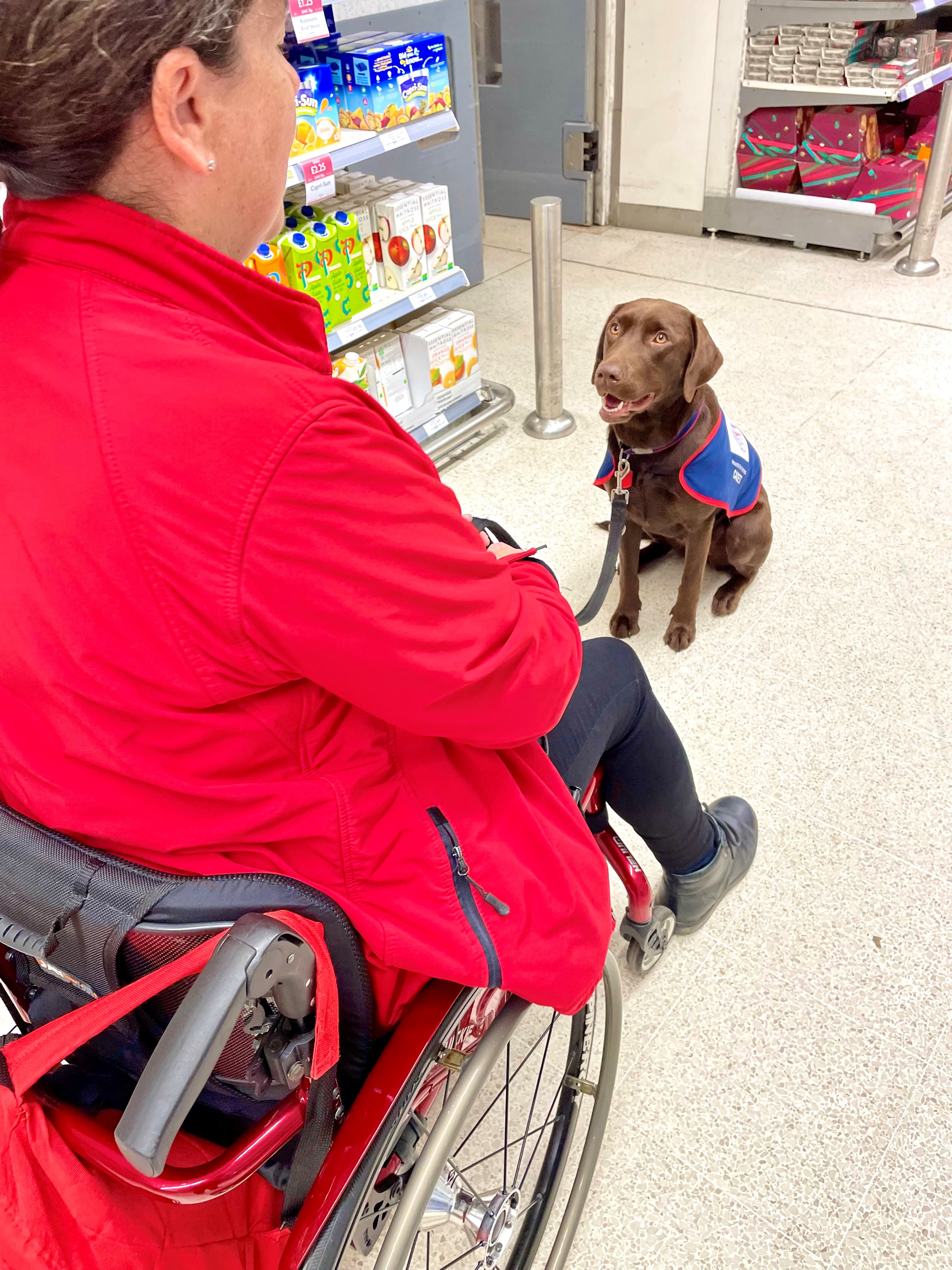
If the initial introductory session just described has been successful, a Pre-Placement Training Course (PPTC) is scheduled.
At the PPTC the applicant will work closely with the dog during a two-week residential course and the dog will stay with the applicant overnight in their room. The course is held in a neutral place away from the training centre and not at the applicant's home and our trainers are on site at all times should support be needed
If everyone agrees the course has gone well they will be officially Partnered and the dog will go home with their new Partner at the end of the course. It is such an exciting and happy time!
The work however doesn't stop there!
Hounds for Heroes trainers undertake ongoing aftercare for each Partnership. Initially the aftercare is weekly, which over time moves to at least every six months or as required by each Partnership.
All our Hounds for Heroes dogs are retired naturally at the age of 10 after giving tremendous life-changing service and companionship to their Partner and family.
Retirement ensures the dog is still fit, healthy and happy to be working, and if required, it enables us to begin training a successor dog.
We’re sure you are asking “so, what happens to the retired dog?” Well, that depends entirely on each individual circumstance.
If the Partner is in a situation where they can keep the dog, then this can be arranged. If they can't keep the dog for personal reason or circumstances, then we can try to re-home the dog with someone known to the dog and Partner. Sometimes that means the retired dog will go back to live with its original puppy parents. Once retired, the dog will live out their retirement as a pet dog.
A successor dog will begin training two years before the working dog is due to retire. This way there is a dog ready to support the Partner seamlessly. There is a short application process for a successor dog to re-assess the Partner's current situation and to ensure all information is up to date and correct.
